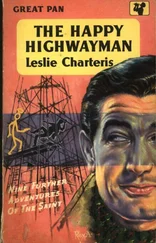Brand Whitlock - The Happy Average
Здесь есть возможность читать онлайн «Brand Whitlock - The Happy Average» — ознакомительный отрывок электронной книги совершенно бесплатно, а после прочтения отрывка купить полную версию. В некоторых случаях можно слушать аудио, скачать через торрент в формате fb2 и присутствует краткое содержание. Жанр: foreign_prose, foreign_antique, на английском языке. Описание произведения, (предисловие) а так же отзывы посетителей доступны на портале библиотеки ЛибКат.
- Название:The Happy Average
- Автор:
- Жанр:
- Год:неизвестен
- ISBN:нет данных
- Рейтинг книги:5 / 5. Голосов: 1
-
Избранное:Добавить в избранное
- Отзывы:
-
Ваша оценка:
- 100
- 1
- 2
- 3
- 4
- 5
The Happy Average: краткое содержание, описание и аннотация
Предлагаем к чтению аннотацию, описание, краткое содержание или предисловие (зависит от того, что написал сам автор книги «The Happy Average»). Если вы не нашли необходимую информацию о книге — напишите в комментариях, мы постараемся отыскать её.
The Happy Average — читать онлайн ознакомительный отрывок
Ниже представлен текст книги, разбитый по страницам. Система сохранения места последней прочитанной страницы, позволяет с удобством читать онлайн бесплатно книгу «The Happy Average», без необходимости каждый раз заново искать на чём Вы остановились. Поставьте закладку, и сможете в любой момент перейти на страницу, на которой закончили чтение.
Интервал:
Закладка:
They discussed Marley until the meal was done, and Connie and Chad had gone out of doors. Judge Blair followed his wife into the sitting-room.
“I’m worried, I’ll admit,” said the judge. “What could it have been that so distressed her?”
“Oh well, the children’s little quarrels were too much for her nerves.”
“I suppose so.”
They were silent and thoughtful, sitting together, rocking gently in their chairs as the twilight stole into the room.
“It’s too bad he’s going to study law,” the judge said after a while.
He shook his gray head dubiously.
“But you always say that about any one who’s going to study law,” Mrs. Blair argued. “You even said it about George Halliday when his father took him into partnership.”
“Well, it’s bad business nowadays unless a young man wants to go to the city, and it’s hard to get a foothold there.”
“But you began as a lawyer,” she urged, as though he had finished as something else.
“It was different in my day.”
“And you’ve always done well in the law,” Mrs. Blair went on, ignoring his distinction.
“Oh yes,” the judge said in a tone that expressed a sense of individual exception. “But I went on the bench just in time to save my bacon. There’s no telling what might have become of us if I had remained in the practice.”
They were silent long enough for him to feel the relief he had always found in his salaried position, and then he said:
“You don’t suppose—”
“Oh, certainly not!” his wife hastened to assure him.
“Well, I think it would be well, perhaps, to watch her closely. I don’t just like the notion.”
“But his father is—”
“Yes, but after all, we really know nothing about him.”
“That is true.”
“And then Lavinia’s so young.”
“Yes.”
“I’d go to her.”
“After a while,” Mrs. Blair said.
They heard steps on the veranda, and then the voices of Mr. and Mrs. Chenowith who had run across, as Mrs. Chenowith said, when Mrs. Blair met them in the darkness that filled the wide hall, to see how they all were. The Chenowiths begged Mrs. Blair not to light the gas; they preferred to sit out of doors. The Chenowiths remained all the evening. When they had gone, the judge drew the chairs indoors, while Mrs. Blair rolled up the wide strip of red carpet that covered the steps of the veranda. And when they had gone up to their room, Mrs. Blair stole across to Lavinia, softly closing the door behind her.
She found the girl stretched on her bed, her face buried in the pillows, which were wet with her tears.
“What is troubling my little girl?” she asked. She sat down on the side of the bed, and lightly stroked Lavinia’s soft hair. The girl stirred, and drew herself close to her mother. Mrs. Blair did not speak, but continued to stroke her hair, and waited. Presently Lavinia cried out:
“Oh, mama! mama!”
And then she was in her mother’s arms, weeping on her mother’s breast.
“I’ve never kept anything from you before, mama,” Lavinia cried.
“No,” Mrs. Blair whispered. “Can’t you tell mama now?”
And then with her mother’s arms about her Lavinia told her all. When she had finished she lay tranquilly. Mrs. Blair was relieved and yet her troubles had but grown the more complicated. She saw all the intricate elements with which she would have to deal, and she quailed before them, realizing what tact would be required of her.
“The coming of love should be a time of joy, dear,” she said presently. Even in the darkness, she could see the white blur of Lavinia’s face change its expression. A smile had touched it.
“It should, shouldn’t it, mama?”
“Yes, indeed.”
“But I never kept anything from you before.”
Mrs. Blair laughed.
“But you kept this only a day, dear. That doesn’t count.”
“It was a long day.”
“I know, sweetheart.” The mother kissed her, and they were silent a while.
“I do love him so,” said Lavinia, presently. “And you’ll love him too, mama, I know you will.”
“I’m sure of that, dear.”
“But what of papa?”
Mrs. Blair felt the girl grow tense in her arms.
“That will all come right in time,” said Mrs. Blair.
“Will you tell him?”
“Not just now, dear. We’ll have this for a little secret of our own. There’s plenty of time. You are young, you know, and so is Glenn.”
“I love to hear you call him Glenn.”
Mrs. Blair remained with Lavinia until she had tucked her into her bed.
“Just my little child,” the mother whispered over the girl. “Just my little child.”
“Yes, always that,” said Lavinia. And her mother kissed her again and again, and left her in the dark.
When Mrs. Blair rejoined her husband, he laid down the book he always read before retiring, and looked up with the question in his eyes.
“She’s just a little nervous and tired,” Mrs. Blair said. “She’ll be all right in the morning. I think it best not to notice her.”
“Do you think we’d better have Doctor Pierce see her?”
“Oh, not at all!” Mrs. Blair laughed, and the judge, reassured, went back to his book.
They were awakened from their first doze that night by voices singing.
“It’s some of the darkies from Gooseville,” said Mrs. Blair. “They’re out serenading.”
“Yes,” said the judge. “It is sweet to fall asleep by.”
At the sound of the singing Lavinia had crept from her bed and crouched in her white night-dress before the open window; the shutters were closed. She heard the melody from far down the street. The singing ceased, then began again, drawing nearer and nearer. Presently she heard the fall of feet on the sidewalk before the house, and the low tones of voices in hurried consultation. And then a clear baritone voice rose, and she heard it begin the song:
“Oh the sun shines bright in my old Kentucky home,
’Tis summer, the darkies are gay.”
She knew the voice. Her heart swelled and the tears came again and there alone in the fragrant night she opened her arms and stretched them out into the darkness.
CHAPTER VI
LOVE’S ARREARS
The days following the picnic had been no easier for Marley than they had been for Lavinia. As he looked back on that night, a fear took hold of him; the whole experience, the most wonderful of his life, grew more and more unreal. Much as he longed to see Lavinia again, he was afraid to go to her home; he wondered whether he should write her a note; perhaps she would think him false, perhaps she would think he had already forgotten her; the idea tormented him; he did not know what to do. He had seen her but once, and then at a distance; the Blairs’ well-known surrey had stopped in the middle of the Square, and George Halliday stood leaning into the carriage chatting with Lavinia. Marley had but a glimpse of Lavinia’s face, pink in the shadow of the surrey-top. As they drove away she had turned with a smile and a nod at Halliday. The sight had affected Marley strangely.
He felt himself so weak and incapable in this affair that he longed to discuss it with some one, and on Sunday afternoon he found his mother at her window with the Christian Advocate , which replaced, in her case, the nap nearly every one else took at that hour.
“How old was father when you were married, mother?” he began.
He spoke out of that curious ignorance of the lives of their parents so common to children; he had never been able to realize his parents as having separate and independent existences before his own. Mrs. Marley laid her paper by, and a smile came to her face.
Читать дальшеИнтервал:
Закладка:
Похожие книги на «The Happy Average»
Представляем Вашему вниманию похожие книги на «The Happy Average» списком для выбора. Мы отобрали схожую по названию и смыслу литературу в надежде предоставить читателям больше вариантов отыскать новые, интересные, ещё непрочитанные произведения.
Обсуждение, отзывы о книге «The Happy Average» и просто собственные мнения читателей. Оставьте ваши комментарии, напишите, что Вы думаете о произведении, его смысле или главных героях. Укажите что конкретно понравилось, а что нет, и почему Вы так считаете.












